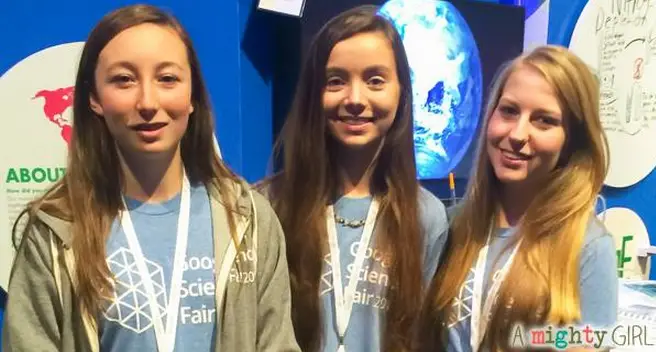The constant mantra that GMOs are needed to “feed an increasing world population” has been one of the few defenses Monsanto and other companies have had for their increasing production of the highly controversial crops, but are they really necessary?
We already know that the United Nations has weighed in on the subject by saying that small-scale organic farming is the best way to feed the world, but did you know that there are many promising developments in natural agriculture that continue to suggest that GMOs are far from necessary?
Recently three unassuming young girls from Ireland presented their own research on a new way to dramatically increase the yields of several basic food crops — and in the end they were handsomely rewarded for their contribution.
Taking Home Top Honors
The three 16-year-old girls, Émer Hickey, Ciara Judge, and Sophie Healy-Throw, hail from Cork, Ireland and originally set out to find a new, natural way to speed up the germination of seeds. Seeds are most vulnerable during this state, hence the importance of doing so.
In the end they found themselves on the winning end of a contest involving 5,000 projects submitted by teenagers from 90 countries this past fall, the 2014 Google Science Fair. The same research previously also won the top prize at the 2013 European Union Contest for Young Scientists.
A Simple Yet Promising Discovery
The girls began by learning about diazotroph bacteria in Émer’s mother’s garden, where they noticed nodules on pea plants in her garden. The nodules were caused by the rhizobium bacteria, they discovered, which has a symbiotic relationship with legume plants to improve their growth as this post by the Facebook page A Mighty Girl noted.
The girls tested the performance of over 9,500 seed samples and recorded over 120,000 measurements by hand, showing that using this type of bacteria resulted in increased harvest yields of up to 70% for barley and oats.
Their passion for research was originally sparked by the 2011 famine in the Horn of Africa, and led to the promising results which can be viewed here on the Google Science Fair’s website.
The ability to use different microbes including bacteria to increase soil quality is being studied by universities across the country, and discoveries like these could lead to a safer and healthier future where food production is more eco-friendly and less reliant on chemical fertilizers (without using any genetic modification).
For more on the girls’ discovery check out the video below!
Thanks for reading! P.S. Don’t forget you can subscribe for more articles like these (and get a free eBook) by clicking here.
Thanks for installing the Bottom of every post plugin by Corey Salzano. Contact me if you need custom WordPress plugins or website design.





